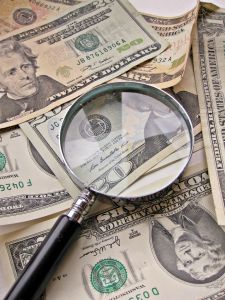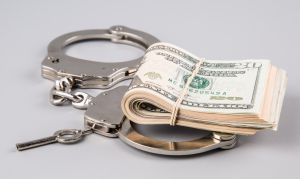Vincent Emmanuel, owner of a South Philadelphia 7-11, claims to have noticed the rise in recent counterfeit activity. His store reportedly has a system for identifying fake bills. However, his bank notified him that several counterfeits had still been accepted. Emmanuel said, “In the last 24 hours, there have been two different customers who tried to pass a $100 counterfeit bill, then a little kid comes in here and asks me, ‘give me ones for the 20’s.’ They were all fake bills.”

This is not an isolated incident. Counterfeiting is a widespread epidemic and officials in Philadelphia are actively investigating a number of incidents in the area.
In an age of digital currency and plastic cards, it is more common than ever for people to not carry any cash on their person. This lack of exposure makes the average, untrained eye even more vulnerable to be fooled by a fake bill.
Counterfeiters and technology have become so advanced that even many detection pens still cannot identify a fake note. The illegal process of bleaching and re-printing allows the bills to appear passable. The Secret Service has created a website called “Know your Money” as a resource for anyone questioning the authenticity of a bill. Without the aid of a pen, identifying factors such as watermarks, security threads, and other micro-printings are the safest way to confirm legitimacy.
Michelle Shannon is a vice president and area manager at a local bank.
“When you’ve been in the industry as long as I have, you just get a feel for these kind of things,” Shannon said. “Even the best counterfeit bills almost always have a flaw somewhere. Most counterfeits I’ve encountered feel heavier in your hand and the size may be slightly off.”

Business owners are the largest demographic to become victimized by counterfeiting. It is advised that counterfeit cash be turned in to be destroyed. Unfortunately, there is no way to be financially reimbursed for the loss. This is why it is critical to identify the authenticity of a banknote before accepting it rather than after.
“I would say 90 percent of customers who bring in counterfeits are businesses owners whose employees have unknowingly accepted fake money. If you bring in $300 but have accidentally accepted a fake 20, you really only made $280 because the counterfeit must be turned in to the Secret Service for investigation, then on to the mint to be destroyed. It’s so important to protect yourself. Investing in pens, charts and UV lights can save you from losing a lot of money in the long run.”
When accepting a large bill, one should take note of the person’s appearance and be sure to thoroughly inspect the bill. If it is suspected the bill may be fake, it is encouraged that it be declined immediately.



